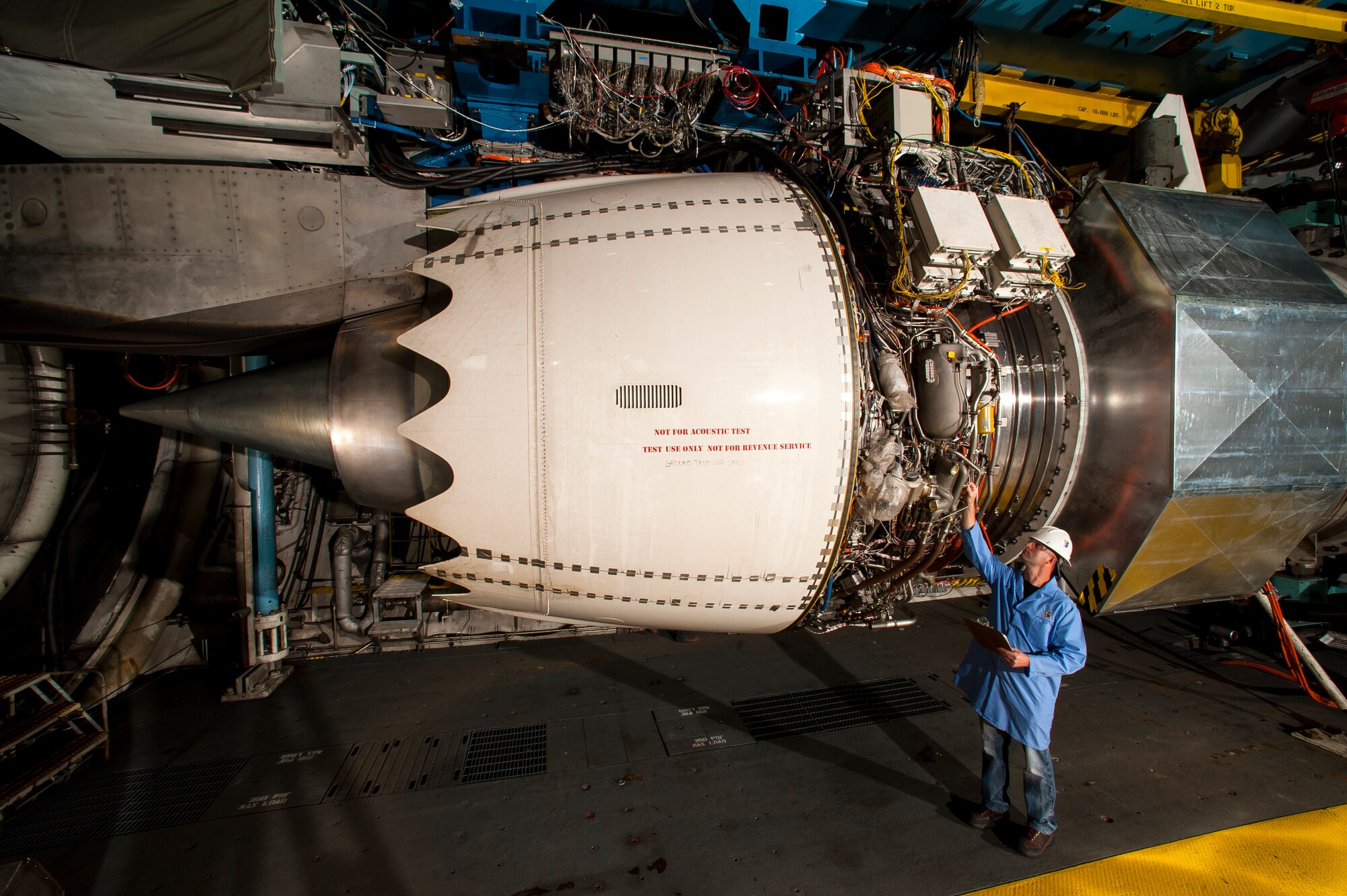EN 310 Helicopter Turboshaft Engine Testing
The EN 310 standard is a European Technical Standard (ETS) that specifies the requirements and test procedures for the performance testing of helicopter turboshaft engines. This standard ensures that these engines meet stringent safety, reliability, and efficiency criteria, which are critical for the aviation industry.
Helicopter turboshaft engines play an essential role in ensuring safe and efficient operation during flight. These engines convert fuel into mechanical power to drive accessories and rotors, providing the necessary thrust for vertical take-off and landing (VTOL) operations. The EN 310 testing process involves a series of rigorous tests designed to assess various aspects of engine performance, including thermal efficiency, transient response, and durability.
The testing protocol outlined in EN 310 is designed to ensure that the engines meet the required standards before being certified for commercial use. This includes static and dynamic tests conducted under controlled environmental conditions. Static tests involve measuring the engine's power output while it remains stationary, whereas dynamic tests assess performance during operation with the associated loading.
During these tests, a range of parameters are monitored to ensure compliance with EN 310 specifications. These include:
- Thrust output
- Fuel consumption rates
- Temperature profiles
- Vibration levels
- Noise emissions
The testing process also involves evaluating the engine's ability to withstand various operating conditions, such as altitude variations and temperature changes. These tests are crucial for ensuring that engines perform reliably under all expected flight conditions.
Once the testing is complete, detailed reports are generated, outlining all test results against EN 310 criteria. Compliance with these standards ensures that helicopter turboshaft engines meet the highest safety and performance benchmarks in the industry.
To achieve this level of precision and accuracy, our laboratory uses state-of-the-art equipment and highly skilled personnel. Our team has extensive experience in conducting EN 310 tests, ensuring that we deliver accurate and reliable results every time. Whether you are a manufacturer or an operator, trust us to provide the testing services needed to ensure your engines meet all necessary standards.
In summary, the EN 310 standard plays a critical role in ensuring the safety, reliability, and efficiency of helicopter turboshaft engines. By adhering strictly to this standard during performance testing, we can guarantee that these engines will perform as expected under real-world conditions.
Why It Matters
The importance of EN 310 Helicopter Turboshaft Engine Testing cannot be overstated. This standard is a critical component in ensuring the safety and reliability of helicopter turboshaft engines, which are vital for both military and civilian applications.
Helicopters rely on these engines to provide the necessary power for vertical take-off, landing, and maneuvering during flight. Any failure or malfunction can have serious consequences, making it essential that these engines meet strict performance criteria before being certified for use.
The tests outlined in EN 310 are designed to evaluate various aspects of engine performance, including thermal efficiency, transient response, and durability. By conducting these tests under controlled conditions, we can ensure that the engines perform reliably and safely under all expected flight conditions.
Compliance with EN 310 also ensures that helicopter turboshaft engines meet international standards for aviation safety and performance. This is particularly important given the global nature of the aviation industry, where regulations may vary between countries.
In addition to ensuring compliance with regulatory requirements, testing according to EN 310 helps manufacturers identify potential issues early in the development process. This allows them to make necessary adjustments before engines are put into production, ultimately leading to safer and more reliable products.
For operators of helicopters, adherence to these standards can help reduce maintenance costs by identifying potential problems during testing rather than during actual flights. It also ensures that their fleets meet the required safety standards, thereby protecting both the company's reputation and the well-being of passengers and crew.
Eurolab Advantages
At Eurolab, we understand the critical importance of EN 310 Helicopter Turboshaft Engine Testing. That’s why our laboratory offers a range of advantages that set us apart from other testing facilities.
- State-of-the-art equipment: Our facility is equipped with cutting-edge technology, ensuring precise and accurate test results.
- Experienced personnel: Our team consists of highly skilled professionals with extensive experience in conducting EN 310 tests. They are dedicated to delivering reliable and accurate results every time.
- Detailed reports: After completing the testing, we provide comprehensive reports that outline all test results against EN 310 criteria. These reports help manufacturers and operators make informed decisions about their products.
- Comprehensive support: We offer a range of services to support your testing needs, from initial consultation to final report generation. Our goal is to ensure that you have everything you need to meet the required standards.
At Eurolab, we take pride in our commitment to quality and reliability. We are dedicated to providing the highest level of service and support to help you achieve your testing objectives. Whether you are a manufacturer or an operator, trust us to provide the testing services needed to ensure your engines meet all necessary standards.
Quality and Reliability Assurance
- Thorough Inspection: Our laboratory conducts a comprehensive inspection of each engine prior to testing, ensuring that it meets the required specifications before undergoing any tests.
- Controlled Environment: All tests are conducted in a controlled environment, minimizing variables and ensuring accurate results.
- Data Analysis: Our team of experts analyzes all test data to ensure compliance with EN 310 criteria. Any discrepancies or issues are identified and addressed promptly.
- Repeat Testing: In cases where initial tests do not meet the required standards, we provide repeat testing services to identify and resolve any issues.
- Documentation: Detailed documentation is maintained throughout the testing process, ensuring that all steps are properly recorded for future reference.





